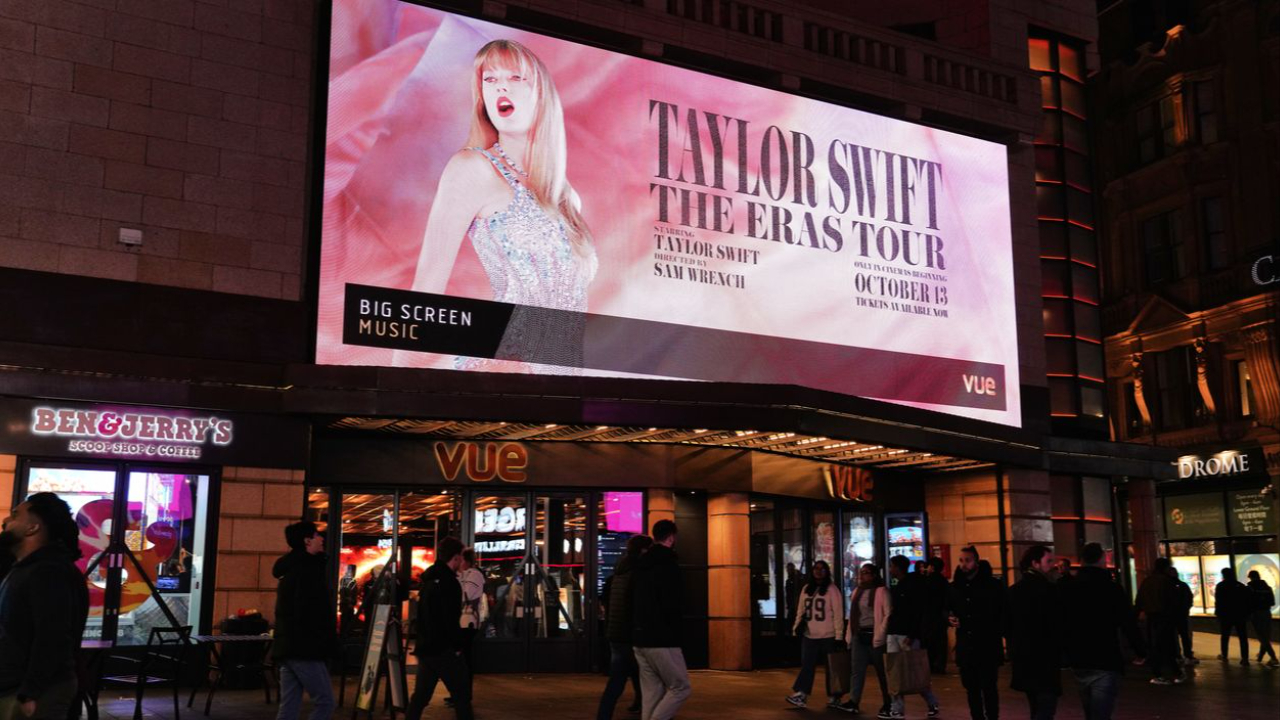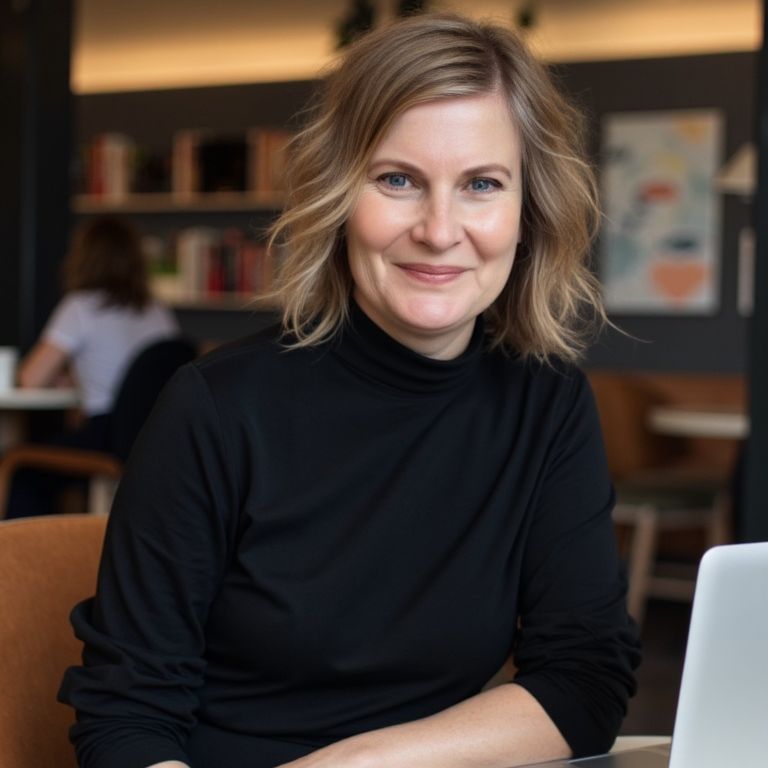Why aren’t people speaking up?
Dec 27, 2023
Recently a record number of people have spoken to me saying, ‘People are coming into my DMs asking why I’m not speaking about x (where x could be climate change, violence against women, Gaza, Ukraine, Afghanistan, trans rights, racism, ableism, reproductive rights…)’.
Here’s how the whole thing plays out; an igniting event happens and it sparks some people to find their voice. But instead of using it, they demand that others with larger platforms speak for them.
To be clear, the demands aren’t being made of people with specific expertise in an area. They’re not necessarily people whose knowledge could offer a really valuable contribution to the public discourse. Rather, they’re being asked of people who have large platforms because they have large platforms.
And it’s not an invitation. It’s a demand.
An invitation looks like this; ‘Hi friend, I’m worried about this issue and have been trying to spread the word about it. If this is something that you’ve been worried about too, I have this resource and was wondering whether you might consider sharing it?’
A demand looks like this; ‘Why aren’t you speaking up about topic x? Don’t you care about y?’
In other words, the demand seems to be seeking an answer to this question; are you with us or against us?
It’s a cousin of cancel culture. It wants to know who’s a worthy ally and who isn’t.
While it may seem like a mild sort of request, in truth, so many acts of mass cruelty have been fueled by this kind of expectation; Prove to us that you’re with us. Demonstrate your loyalty.
If we take a step back from that very dangerous path though, at its most benign, we can see this as a process by which a person finds their advocacy or justice voice.
As they do so, there can be a fixation on ‘my topic’ as being the ‘only topic’.
You often see this when someone finds God or veganism or CrossFit (all good things of course. Don’t send me hate mail because you think I’m speaking up against these things. I’m not. I’m talking about how they spark passionate followers, some of whom can become dogmatic in their thinking).
And the convert makes the mistake of thinking that this new way is the only way.
In that phase of the development of the justice voice, there’s very little appreciation for the fact that everyone is here serving a different purpose on the planet. Or that one person’s sense of urgency about a topic is a calling for them.
For them to use their voice. For them to speak up on the platform they have.
When people make the mistake of thinking it must be a calling for all, they start focusing on why everyone else isn’t speaking up, rather than focusing on what they need to do themselves.
I do understand the urge. I have felt this same urgency, the feeling that I must create change now and that I will do whatever I need to, to instigate it.
What I’ve learned over the years though, is that finding your voice and expressing it, looks different to every person.
Not everyone will develop a strong advocacy voice. Nor does everyone need to.
Recently I’ve been doing some work around the different voices we explore and express as humans. (For those familiar with the chakras you will spot a pattern here.) Here’s what they sound like:
- the voice of belonging
- the voice of creativity
- the voice of justice (which in this post I’m also referring to as the voice of advocacy)
- the voice of compassion
- the voice of wisdom
- the voice of universal truth.
Each of these voices has a healthy and unhealthy form of expression. Not everyone is going to work their way through every voice and the world doesn’t need us all to be using the same voice.
Demanding that other people use their voices to speak about an issue you’re passionate about, is how the voice of advocacy or justice sounds when it has been sparked but doesn’t yet know how to express itself cleanly.
It’s a voice I’ve been working with my whole life and I’ve experimented with many ways to make it both healthy and effective.
So I’m not unfamiliar with the feeling of outrage that can accompany its ignition. In many ways, I’m sympathetic to it. What concerns me though, is how intolerant the voice of justice can be. How rigid. How quickly it can turn from passionate advocacy to bullying. How often someone who might consider themselves a peace advocate – for example – engages in a form of advocacy that’s violent.
- If you’re a peace advocate, the voice you want to anchor into is the voice of compassion.
- If you’re speaking up for creativity, you’ll want to anchor into the voice of creativity.
- If you’re speaking up for wisdom, you don’t do that from the justice voice, you do that from the wisdom voice.
This is why sometimes, people who are working with their justice voice, feel like the people speaking with the wisdom voice aren’t capturing their issues effectively. They’re right; they’re not doing that because that’s not their job. Which brings us to appreciate why pushing your agenda onto someone else is so disturbingly self-focused (even when your advocacy is on behalf of someone else).
It assumes everyone is either supposed to be speaking up using their advocacy or justice voice or that if they aren’t it’s because they aren’t as advanced or awake as you.
When you’re in the unhealthy expression of the advocacy voice, judgment is one of the lessons you’re being presented with. It’s one you need to work through. Instead, what often ends up happening is you project that out to everyone else and demand that they care about everything you care about.
So how do we turn things around? How do we move from an unhealthy to a healthy voice of justice?
Here’s where I think we should start; by thinking more closely about what effective advocacy looks like. Here are some thoughts;
- Start by deciding to use your own platform first to advocate for the issues that matter to you.
- Choose to utilise the opportunities democracy offers for all to have a voice.
- Lobby your MP.
- Attend peaceful protest marches.
- Write thought pieces or books about topics in which you have expertise.
- Share the work of people who are experts on topics you don’t have expertise in.
- Pitch yourself to be interviewed on podcast shows and YouTube channels.
As you start to assess these options, the boundaries of your expertise and knowledge become apparent. You see where you’re operating in your lane and where you’ve stepped well off the path you’re here to walk.
People who are trying to get others to advocate for them don’t seem particularly committed to the idea of people staying in their lanes and advocating for the things their lane asks of them. Rather, they want everyone in the same lane; their lane.
It reminds me quite a bit of the 80s and 90s when gay activists claimed a ‘moral right’ to force other members of the LGBTIA community out of the closet. It was awful. It caused terrible problems for people, including very significant mental health issues. Even suicides.
That was because we were (and still are for the most part) living in a homophobic world. Gay activists didn’t create the heteronormativity or homophobia they were fighting against. They were trying to find a way to break through it. And still, they didn’t have the right to force other people to fight against discrimination in just one way.
The problem with the unhealthy voice of justice or advocacy is that it can very quickly stop seeing people and just see the cause. It claims to be fighting for people whilst simultaneously becoming less and less humane in the way it engages with people who aren’t willing to pursue things in the same way.
Pushing yourself into someone else’s DMs and demanding to know why they’re not speaking up about an issue, obviously isn’t on the scale of outing people without their consent. But there’s a slippery slope we want to be wary of.
Social media has a worrying capacity to whip up braying mobs who roam around the virtual countryside looking for people to round up and either bring into their fold, or punish for not being on their side.
Which is precisely the kind of behaviour that causes wars.
So let’s all stop expecting others to do the advocacy for us, and focus instead on what each of us can do to exercise a healthy voice of justice or advocacy. (Assuming that’s a voice you’re interested in cultivating.)
The starting point is to recognise that no one can do that job for you. You learn to use your voice by actually using it.
That means meeting your visibility fears. Fears around getting it wrong, being judged, saying the wrong thing, or being misunderstood.
Of course, making mistakes is almost unavoidable. You’ll likely say things you regret and you might even share information that isn’t true because accurate, quality information isn’t as easy to verify as it once was.
Despite all of this, it’s important that you step forward. That you build your own platform and speak up about the issues that matter to you.
As you become more visible on such topics, you’ll find communities of people who care about the things you care about. You might even inspire others to care about those issues too.
This means you’ll start to feel less anxious about why other people aren’t speaking up about your topic. Because you’ll feel full in yourself. You’ll feel your contribution to be valuable and you’ll focus on doing more of that.
You’ll also learn when to speak up about a topic and when to create space for others to do so. (A lesson that many of the people you might have judged for not speaking up have probably already learned.)
Most importantly, you’ll start to exercise discernment.
That’s when your visibility efforts start to matter. Because people who are choosing to be visible without exercising discernment are just creating more noise. And none of us needs more of that.





